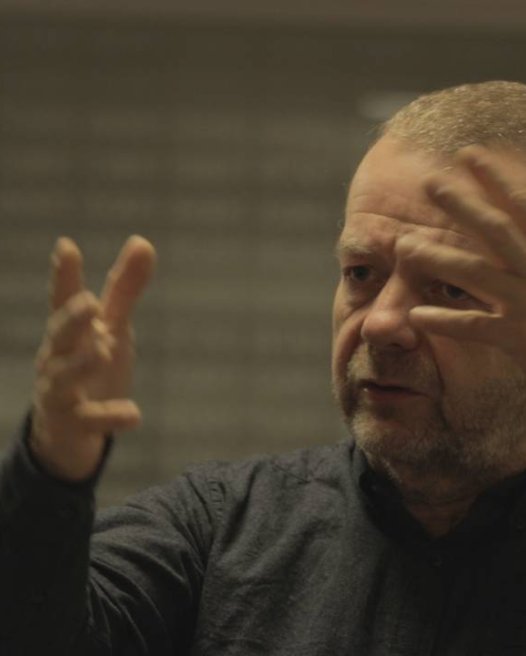Viktor Ciao
During the Ukrainian Euro-Maidan revolution a young journalist Azad, decide to create a song that would keep people together and will continue fighting for their ideals. An Italian song Bella Ciao became an inspiration to him. He named his version Vitia Ciao which was supposed to mean a symbolic farewell to Viktor Yanukovych. Iryna, a young activist who participated in the protests from the first day of the revolution, was the author of the lyrics. The song was sung by Olga, who had not actively participated in the revolution as yet. It was all made in one day in underground conditions. The song very quickly became an unofficial anthem of the revolution. Its lyrics could have been heard not only in Maidan, the heart of the revolution, but also in the whole country as well as during the demonstrations all over the world that supported Ukraine.
Iryna, Azad and Olga are people who were united by the fight for truth and freedom. But after the revolution ended and the beginning of the new Ukraine started, their ways took completely different pats.
According to Iryna, the revolution never ended. The changes do not only concern the political system but also the mentality of people, that is still too connected with Russia.
Azad is a Muslim who comes from Azerbaijan, but he claims that he feels Ukraine is his motherland. He transferred himself as the reporter who specially work in the east Ukraine. I'd like to continue following his path and see why a non Ukrainian citizen is sacrificing his life for freedom of foreign country.
When the revolution was over, Olga went back to her normal life routine. But the war in eastern Ukraine doesn’t allow her to be indifferent. The only weapon she has is her passion to music, which she wants to use one more time. She thinks that the national anthem must be more radical to help the nation during the war.
The movie tries to answer the question what nationalism and self-identification mean for young people during the war time.
Iryna, Azad and Olga are people who were united by the fight for truth and freedom. But after the revolution ended and the beginning of the new Ukraine started, their ways took completely different pats.
According to Iryna, the revolution never ended. The changes do not only concern the political system but also the mentality of people, that is still too connected with Russia.
Azad is a Muslim who comes from Azerbaijan, but he claims that he feels Ukraine is his motherland. He transferred himself as the reporter who specially work in the east Ukraine. I'd like to continue following his path and see why a non Ukrainian citizen is sacrificing his life for freedom of foreign country.
When the revolution was over, Olga went back to her normal life routine. But the war in eastern Ukraine doesn’t allow her to be indifferent. The only weapon she has is her passion to music, which she wants to use one more time. She thinks that the national anthem must be more radical to help the nation during the war.
The movie tries to answer the question what nationalism and self-identification mean for young people during the war time.
Letters
Belarusian activist Vitold Ashurak wrote to his mother: “My beloved mother! Those people who say that adults do not need a mother are wrong! You alone raised Andrei and me and you wanted us to grow up to be decent people! No one will reproach you for your sons being thieves or swindlers! On the contrary, I was imprisoned precisely because I spoke the truth and urged not to bear with swindlers.” The mother's reply was not delivered to Vitold. It was his last letter from the prison, where he was tortured and died under unknown circumstances. After the emergence of unprecedented peaceful protest by Belarusians in 2020, by now the movement has been put down almost completely. People were killed and wounded, and thousands are in prisons with long sentences. The war in Ukraine again sparked the onset of protests against the war, as well as partisan actions against the Russian military. The repressions have become even harder. The only thing that connects prisoners with the outer world is letters. When the streets are quiet and people are afraid to even discuss politics, when an authoritarian state destroys all aspects of normal life, letters can give us an insight into the real human feelings which the system can't destroy. Pain, despair, love, and hope. Film in the form of found footage will be based on correspondence of political prisoners and their relatives, on letters and monologues of people who are actually free but feel themselves under occupation. In the face of ever increasing repression in Belarus many are forced to flee abroad or hide inside. The letters in different chapters, each with its distinct dramaturgy, leitmotif and symbolism, in an intimate manner narrate unusual and untypical perspectives from a worker, scientist, journalists, student, former investigator and others.
